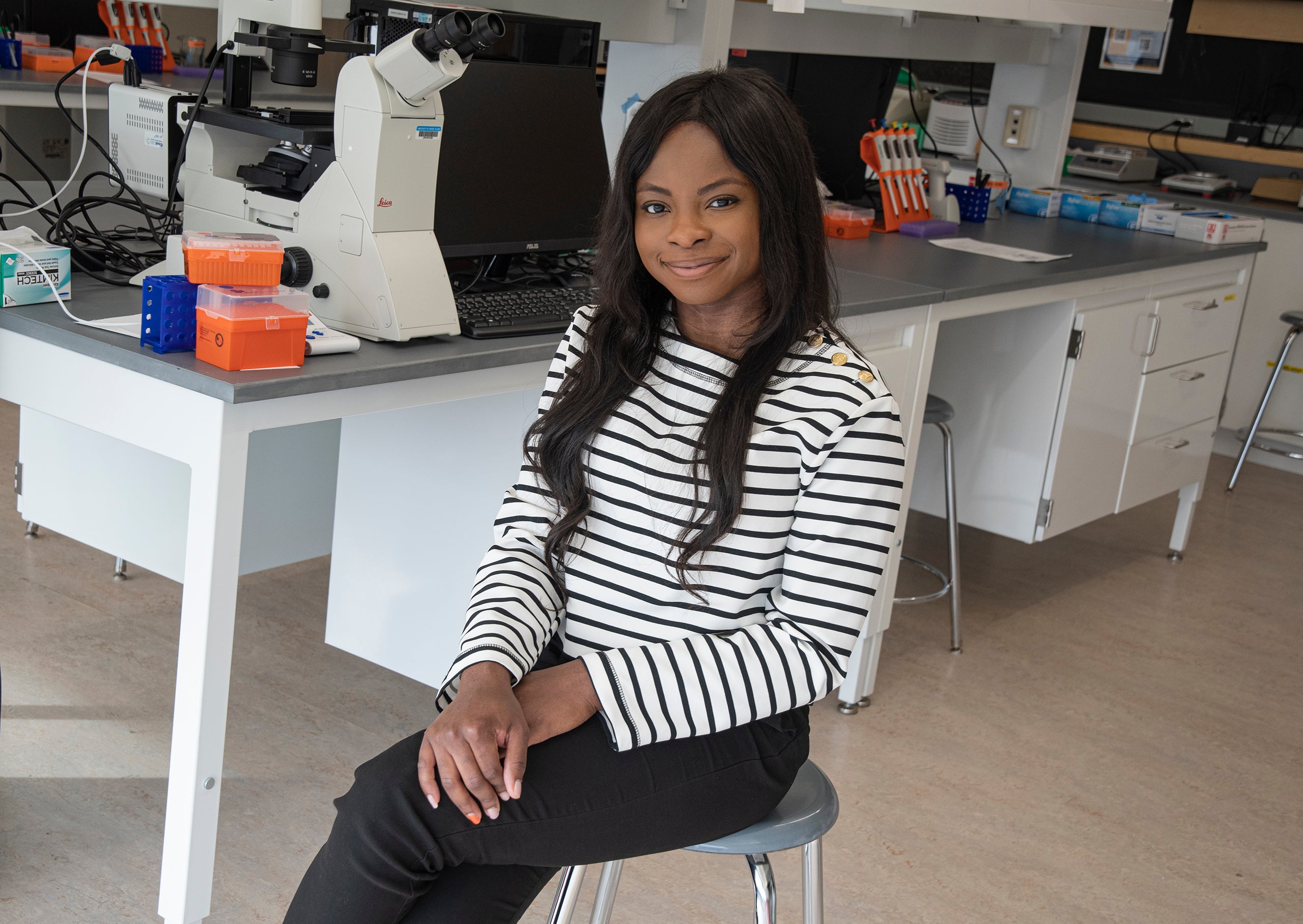
First, let’s smash a few myths. Leadership is not something only certain people are born to. It’s not exclusive to extroverts. And it isn’t about being the loudest, the most confident, or the bravest in the room.


First, let’s smash a few myths. Leadership is not something only certain people are born to. It’s not exclusive to extroverts. And it isn’t about being the loudest, the most confident, or the bravest in the room.
So says Professor Tolani Olagundoye Pharm.D.’17. Olagundoye, a faculty member in the College of the Environment and Life Sciences and a Coastal Institute fellow, works with 4H Rhode Island in youth leadership development. She also teaches leadership through URI 101, a course for first-year and transfer students designed to ensure their successful transition to college.
Olagundoye says the key to finding your leadership style is first to know yourself.
“My parents and I moved to America from Nigeria when I was 12. As I was a first-generation college student, I had to learn many things by myself. My parents have what I call an immigrant mindset. And that mindset is that when you go to America, you understand America is a land of opportunity. My parents told me that when I went to college, I could become a doctor, pharmacist, a nurse, an accountant, or a lawyer. The last option was, you become a shame to the family. And they were very serious about that. I was the first daughter, the first-born of five girls. And so I had the responsibility to lead by example.
“So my mom said, ‘How about pharmacy?’ And I said, sure. In the beginning, I struggled with the fact that my parents chose my major, so I struggled in pharmacy school. I was helping my mom with nursing school at the same time I was going to college. I didn’t have enough time to focus on my pharmacy courses. I had to take a year off and then returned to the College of Pharmacy to complete my degree with full force. My parents’ goal became my goal and I realized I did want to educate people about medication—and about developing a healthy, holistic lifestyle. I wanted to educate the whole person.”
“My first position after graduating from the College of Pharmacy was a fellowship at the Providence VA Medical Center. I prepared trainings on leadership and emotional intelligence and how that affects our leadership skills, work environment, and future successes. You can be the most talented doctor or the best nurse on the floor, but if there’s a bit of bullying going on, if there’s sabotage, if people don’t like working with you, you can’t lead. That kind of drama doesn’t always stop in middle school. More than 200 people would show up to my VA presentations about emotional intelligence. It made me think that perhaps a lack of emotional intelligence could be why we’re struggling in the health care field and in society. I thought we should begin to teach this in middle school, high school, and college. This is why I now teach leadership to youth and college students.”
“I have a set of questions I ask my students. The first is about identity and I ask them to respond to the question, ‘Who am I?’ And they’ll respond by giving me information about how many dogs they have or if their grandparents are living, and I say, No, that’s not what I’m asking. I want to know when you’re alone in a room by yourself or driving a car alone, and the radio has stopped working, and you ask yourself, ‘Who am I?’ How would you define that independent of everything you had? Then I ask, ‘Why are you here?’ and they’ll say they’re here to get a degree to get a good job, and I say, No, that’s not what I’m asking. I’m asking about your purpose on earth.
“I ask my students, ‘What do you believe is wrong with the world?’ And students have so much to say: about climate change and food insecurity and technology and social media and the identity crises we’re all going through right now. Then the last question I ask is, ‘How can we make what is wrong right?’ Humanity is the cause of many of the global issues we face now, but it is also one of the solutions to it.”
“Two of my favorite leadership approaches are the authentic leadership approach and the transformational leadership approach. Authentic leaders express leadership through genuine means. They’re serving alongside the people they work with.
“Transformational leaders have a way of going into an environment and transforming it in how they treat other people by how they carry themselves. They are selfless. The qualities of selflessness and integrity are lacking right now in society. The way I approach leadership is selflessness; that is, the leader eats last—I believe Simon Sinek once stated this. Some leaders in our society have that flipped; their attitude is, I’m the leader, so you need to obey me.”
What have your diverse experiences taught you in your journey to leadership?
“Everyone has a certain amount of privileges and opportunities. Appreciate what you have been given while growing in knowledge, character, and skills. Reach for more opportunities. Show up excellently and do well.”
—Marybeth Reilly-McGreen